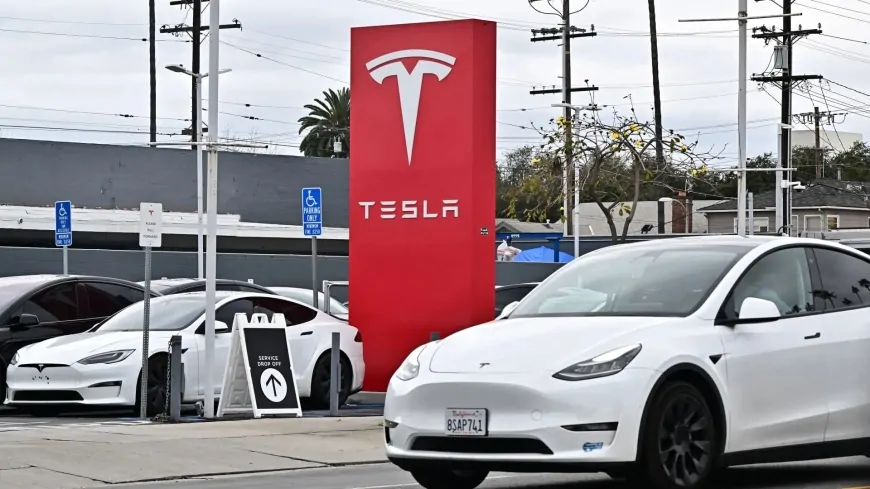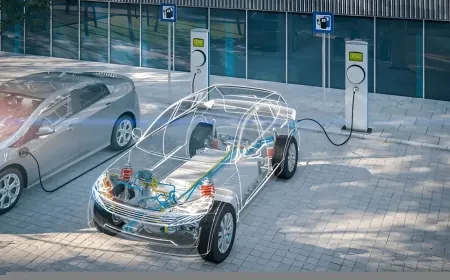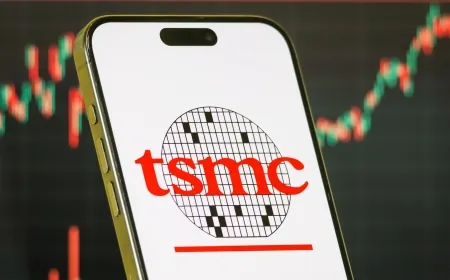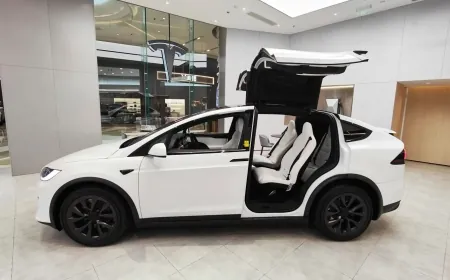Tesla Sees Big Sales Jump in March, But First Quarter Drop Raises Concerns
Tesla’s sales jumped 34% in March, but the first quarter shows a 12% drop. Is the company struggling to keep up with growing competition in Europe?

Tesla experienced a strong sales boost in March, with a 34% increase in new car registrations compared to the same month last year. The company registered 1,983 vehicles in March, according to industry data from ANFAC. However, despite the positive growth in March, Tesla’s overall sales for the first quarter of 2025 fell by 12%, highlighting the challenges the company faces in maintaining its momentum.
The March rise in sales helped to somewhat offset the declines seen in January and February, but the overall picture for Tesla's first quarter remains concerning. The larger trend shows that while electric vehicles (EVs) continue to see rising popularity, competition in the market is becoming fiercer than ever. The global market for electrified vehicles, which includes both EVs and hybrids, saw a significant 47% growth over the first quarter compared to last year. This growth is not just driven by established brands but also by new players, including Chinese manufacturers offering cheaper alternatives.
Tesla is finding itself under increasing pressure, particularly in the European market, where it faces multiple hurdles. The company’s relatively small and aging vehicle lineup, especially when compared to the rapidly expanding offerings from competitors, is a major challenge. Many traditional automakers, like Volkswagen, BMW, and Mercedes-Benz, are now rolling out their own electric models, which offer more features and in some cases lower prices than Tesla’s current models. Additionally, Chinese automakers, such as BYD and NIO, are making aggressive moves into Europe, offering cost-effective electric vehicles with advanced technology and longer ranges. These developments are putting Tesla in a tough spot, as the company struggles to keep up with the growing variety and affordability of electric options.
Elon Musk's recent political affiliations have also stirred controversy in Europe. His support for far-right political groups has caused some backlash, affecting Tesla’s reputation in a region that is sensitive to political views. This added controversy has created a complex situation for Tesla, making it harder for the company to maintain its strong sales in Europe. While Musk’s leadership has been a key factor in Tesla’s success, his polarizing actions could have unintended consequences, further complicating the company’s ability to maintain its market share.
Despite these obstacles, Tesla is still in a dominant position in the global electric vehicle market. The company continues to lead in EV technology and innovation, with its autopilot features, battery technology, and supercharger network remaining industry standards. Tesla’s plans to scale up production with new models, including more affordable versions of its vehicles, are seen as essential to remaining competitive in the coming years. However, the next few months will be critical as the competition heats up, particularly in Europe and Asia.
The electric vehicle market is changing quickly, and Tesla faces a tough challenge in staying on top. The competition is growing stronger, with both established carmakers and new players offering more affordable and innovative options. Tesla's future success will depend on how well it adapts to this shift—whether it’s by improving its vehicles, offering better prices, or addressing consumer needs in new ways. With its price cuts and plans to roll out new models, Tesla has the tools to remain a major player, but it will need to act quickly and decisively to fend off competitors who are coming on strong. The company’s next moves will be crucial in deciding if it can continue to lead or if it will start to fall behind in an increasingly crowded market.
Also Read: Musk Faces Pressure to Prove He Can Lead Tesla While Managing DOGE Role































































